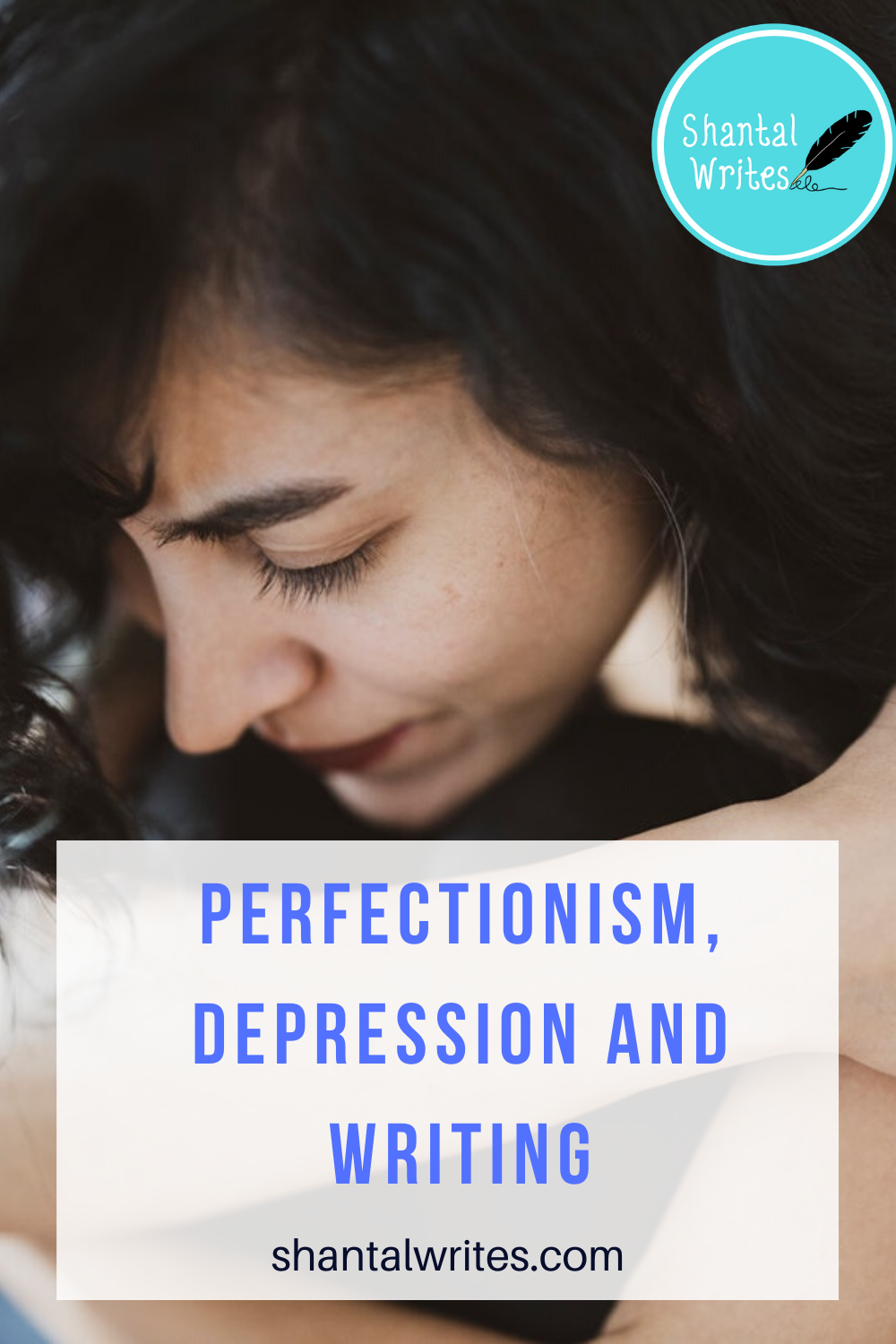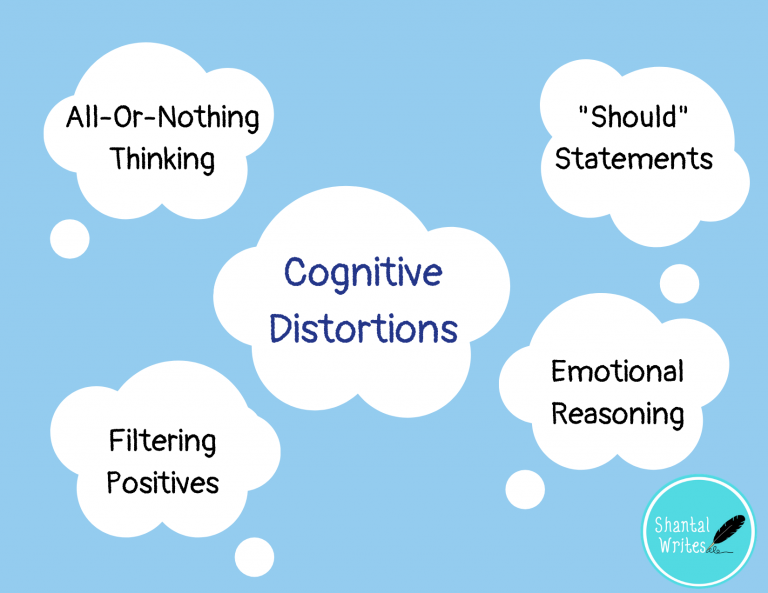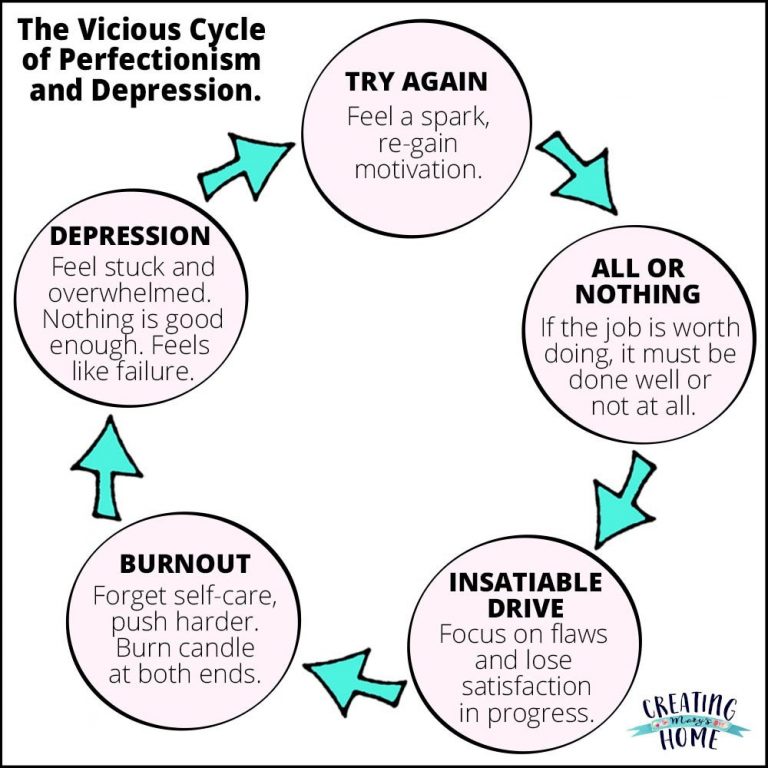
Today’s Sunday, and while I usually post about movies, tv shows or books on this day, I want to talk about perfectionism, depression and writing as it’s the reason why I haven’t been able to come up with content for my blog this week.
It didn’t occur to me until recently that perfectionism is a major component to my depression and anxiety. Perfectionism is the idea that perfection exists, and that we must live to and be that standard. Even writing this article was difficult because my mind was telling me that it was wrong, that it needed to be written a different way, that it needed to be the perfect explanation of what I’m going through.
It’s a vicious cycle, and a cycle I wasn’t aware of until recently when I stumbled upon this graphic on Pinterest by Creating Mary’s Home.
This graphic is specific to home decluttering and decorating, however, it still applies. For me, I go through this cycle not just with writing, but with every other aspect of my life. It sucks: to constantly expect the best of yourself, to ultimately not hit the mark and beat yourself up for it. To be paralyzed by fear of failure, or waiting for the rest of the world to confirm to you how much you suck.
I’ve written articles about how I try to combat perfectionism, but even those things don’t work all of the time. When I can’t fight it, it triggers my anxiety and depression to the point that it stops me from doing anything. I also struggle with PMDD (Pre-menstrual Dysphoric Disorder), which is a form of an emotional/mood disturbance due to hormonal changes during a woman’s menstrual cycle. This too contributes to my struggles, but perfectionism is the primary culprit.
Perfectionism and Distorted Thinking Patterns

Perfectionism can result in distorted thinking patterns and negative self-talk. Some patterns include all-or-nothing thinking, where you think in absolutes like I “never”, “always”, “every”. Using “should” statements, which is the belief that things should be a certain way. Using mental filters to filter out the positive, and emotional reasoning where you confuse your emotions for how things are (ex: “I feel like a bad writer, so I must be a bad writer). These are just a few patterns, but there are more that you can learn about here. In the end, these styles of thinking lead to negative self-talk where we put ourselves down. This is what happens to me.
Written Self-Talk: "Talking to The Page"

I don’t have a solution for this at this time. I wrote this article to share my struggles with other writers who may be going through this as well. However, one thing I have found helpful, even when it gets bad, is to “talk to the page”. In fact, it’s sometimes the only thing I can do. This means that I write out exactly what I’m feeling and thinking as if I’m talking to myself. It’s a technique that helps ground me.
I write to help change my own perspective by exploring and challenging my thoughts and reframing them in a more realistic and objective way. For instance, if I write out “I feel angry because I don’t know what to write for the next scene of my fanfiction” I try to ask myself why it makes me mad. Usually it’s because I expect myself to know what’s next and I feel afraid of going in the “wrong” direction (away from the ideal story I want to write). So, then I tell myself, “what if it’s okay not to know where to go next for right now? What if it’s okay to just write what I think will happen next, even if it’s not the best direction, until I discover what the better step could be?”. This kind of self-talk—this written self-talk—allows me to identify my thinking patterns and to reframe my thoughts into more accurate statements that show kindness to myself, allows me flexibility and allows me to be human. In the end, this makes me feel better and allows to “get back on the horse”.
Are you struggling with any mental health problems or perfectionism that is preventing you from writing all that you want to write? Please share your story with me in the comments below, or send me a message here! I hope to get back to you as soon as possible! Until next time, I wish you all luck, fellow storytellers!

Hi! Shantal here. I’m a writer and a storyteller. I created Shantal Writes to share my experiences with writing fiction. I also provide new writers with tips, tools, and writing advice. I hope you find something helpful while you’re here!
More On Shantal Writes





